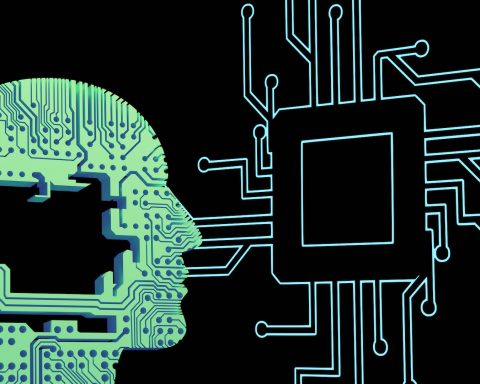Feryad Hussain is a clinical psychologist with North East London NHS Foundation Trust, and has worked in a wide range of Health Psychology Services for over 20 years.
The onset and spread of Covid-19 is a phenomenon not seen in living memory, standing alone as one of the few world events to which every country and every citizen has been exposed. Two years on, with a rapidly growing research body, the disease trajectory has revealed several variations and subsequent long-term health conditions, forcing medical teams to review existing management and treatment strategies to reduce long term ramifications
Long covid (LC) has been identified as part of the long-term effects of the pandemic, bringing new challenges for healthcare teams, but the on-going focus on Covid -19 means LC is given less attention, as are the related consequences and the impact on services.
The onset and spread of Covid-19 is a phenomenon not seen in living memory.
This article aims to offer a biopsychosocial view of LC, considering the context of wider government guidance. It is hoped that the information will support primary care services, increasing their awareness of LC patient experiences and facilitate their management.
Whilst the focus of this article is LC, the impact of Covid -19, the pandemic, lockdown and related psychosocial impact are acknowledged as contributing to LC patient experiences and the two are not assumed to exist in isolation.
What we know: Diagnosis and prevalence
The LC diagnosis emerged from experiences of Covid – 19 patients whose symptoms appeared to extend beyond the then clinical understanding of the illness trajectory. The introduction of a projected time frame for recovery allowed for a distinction between simple Covid and LC symptoms, offering clinicians a platform to inform them of a ‘new’ disease.3
Despite this, the diagnosis of LC comes with no agreed definition. Indeed, a review by Centre for Dissemination and Engagement maintains that current evidence of the LC profile suggests four different syndromes, each with different causes and treatment plans.4 Clinicians have been working with a wide range of symptoms under the banner of LC, amidst on-going research on disease pathology, trajectory and treatment.4,5
Current evidence of the LC profile suggests four different syndromes.
Symptoms
Greenhalgh et al described LC as a multi-level disease encompassing, physical, neurological, and psychological problems (which are either directly related to neurological issues or as a reaction to impact of LC on quality of life).7
Physical symptoms
Beaud et al identified early on that cognitive issue ranged from the mild end of the spectrum where LC patients experience a “blunting of their previous cognitive ability,” struggling with words being on the tip of their tongue, difficulty concentrating, becoming easily distracted, uncharacteristic forgetfulness, memory loss and general reduced mental stamina, also known as ‘brain fog.’5
Ajyegbusi et al in reviewing prevalence data, identified the 10 most reported symptoms as fatigue, shortness of breath, muscle pain, joint pain, headache, cough, chest pain, altered smell, altered taste and diarrhoea.8
The 10 most reported symptoms …. fatigue, shortness of breath, muscle pain, joint pain, headache, cough, chest pain, altered smell, altered taste and diarrhoea.
Psychological symptoms and influential factors
Thompson et al, in reviewing UK electronic health records, suggest that there are in-hospital factors affected Covid-19 inpatients that they believe to be predisposing factors, resulting in increased patient susceptibility to mental health problems.10 These were identified as; pre-existing / co morbid mental health issues, alexithymia, inadequate hospital supplies and inadequate information. Although focusing on acute Covid-19, the same issues apply to LC patients although the context may be related specifically to healthcare services.
Whilst practical issues may seem unrelated to psychological problems, mental health problems may arise because of emotional reactions to, and interpretations of, their situation and resultant trauma, as distinct from but not excluding PTSD.
Specific mental health problems related to LC include, PTSD, major depressive disorder, anxiety disorders, sleep disorders, phobias, fears with avoidant behaviours, health anxieties, OCD and adjustment disorder related to living with LC symptoms, social exclusion and addictions (as a form of coping) and neuropsychiatric disorders.11,12
Gaps in our understanding
The above lists are by no means definitive, and as our understanding of LC increases no doubt additional symptoms may emerge over time. Making an accurate diagnosis at the coal face is complex, and so primary care services have little information and few tools to support this group. A poignant editorial in The Lancet recommended that part of supporting LC patients was in fact to support primary care, stating that due to the above-mentioned processes, patients are at risk of their symptoms are being diminished or ignored – resulting in poor outcomes for patients and services alike.2
Making an accurate diagnosis at the coal face is complex …. primary care services have little information and few tools to support this group.
Additional influential processes and systems
In attempting to obtain a more complete picture of LC, it is important to consider external, influential processes upon the diagnosis, treatment, and patient experience of LC.
Health policies regarding LC have come from patient experiences informing clinicians and treatment, further informing research, in turn informing government policy. As such we have learnt to focus our attention on patient experiences, many of whom are healthcare professionals, thus allowing for a greater insight in to related treatment.2
We see then that the two groups – patients and health/government bodies – are inter-twined, and yet this is not considered when we reflect upon LC patient presentation which is the basis for forwarding our knowledge. In exploring this link, we may be able to improve our clinical management of LC patients.
Considering the national context
Throughout the pandemic both the public and the government have worked with the unknown, and initial management guidelines were necessarily reviewed on a daily basis, with significant shifts within days, sometimes even hours, as new evidence emerged. World populations found themselves in an atmosphere where management strategies stopped, re-started, changed direction, or were aborted with little preparation and no room for wider public opinion.
This, coupled with a disturbing rapidity of increasing deaths, resulted in an atmosphere of fear and so (arguably) a readiness to adhere to guidance regarding safety/health behaviours. With an absence of consistent information, the population look to be advised, to be guided and directed. They too required evidence as to outcomes and effectiveness as eagerly as health bodies did, to ensure protection of themselves and their families.
LC healthcare teams were set up in a context of increasing need, and were hard pushed to present immediate and effective outcomes / measures, so that, as with Covid-19, the results could inform the development of treatment plans. The pressure to perform has been high, with healthcare professionals feeling that the completion and submission of outcomes and key performance indicators (KPIs) was equal to care. As such, teams have treated large numbers of, patients with no time to consider more subtle patterns of patient presentation.2
The role of biopsychosocial factors
We see the impact of physical, psychological, and wider influencing systems at the coal-face, on LC patients’ presentation and their interpretation of expected treatment.
We see the impact of physical, psychological, and wider influencing systems at the coal-face.
Recognition of LC related patterns of patient presentation may be helpful in identifying those patients warranting further LC investigations.
Common patient presentations
There are a number of patient presentations that colleagues working in LC rehabilitation services have noted. Where physical symptoms may overlap with other health concerns it is perhaps a focus on these more subtle patient presentations and their influences that may support LC management.1
As a result of bio-psychological issues, LC patients may regularly:
- Miss calls, appointments or confuse timings and may be seen as lacking in motivation, thus not followed up due to poor attendance and engagement. These memory problems may be perceived as stress related forgetfulness.
- Be confused regarding information given, have poor recall and an inability to express themselves clearly, resulting in repeated information requests / calls to services, interpreted as poor engagement.
- Alternate between varying levels of motivation regarding treatment that are not consistent with engagement and treatment adherence due to extreme fatigue.
As a result of social/policy issues, LC patients may regularly present as:
- Being helpless, seemingly passive and lacking in taking responsibility for their health e.g. not making phone calls but referring all issues to health professionals. Given the guidance has been top-down but the information informing the guidance has been bottom-up, patients are left feeling unsure of their own needs and who ‘leads.’ As such they may wait for professionals to act without input from themselves.
- Expressing any symptom as urgent due to the daily fatality reporting and direct government-to-public updates on decision making regarding LC/ Covid-19 issues.
- Pressurising professionals to act, feeling that they are having to fight for available treatment due to the publicised warnings of limited healthcare resources, resulting in dysfunctional exchanges.
….feeling that they are having to fight for available treatment due to the publicised warnings of limited healthcare resources,
- Hopeless and lacking faith in healthcare professionals, again due to the publicising of reduced activity in other health specialties, as has been the case with cancer or other long-term conditions.
The integration and assimilation in the mind of patients between both the handling of Covid-19 and LC have created a very challenging clinical environment, and contribute to emotional distress and seemingly paradoxical behaviour. This may result in dismissing the lived experience of the patient and their presentation. This coupled with the pressure upon healthcare workers themselves suggests some validity to the earlier mentioned concern of LC patients being at risk of their symptoms being missed. Strategies need to be put in to place to mitigate their impact.
These may include simple adaptations to existing clinical practice, such as;
- Offering patients more written and less verbal information during consultation, allowing them time to have information to hand and reduce information over-load for patients’ neurological issues.
- Considering longer consultations in order express and verbalise needs.
- Consultations may need to include video consultations (but not telephone calls only – which themselves feed into the experiences of social isolation) to support patients struggling with the effects of fatigue or health issues which may make attendance at surgeries a challenge.
- Encouraging patients to take more responsibility for their treatment, and identify barriers to motivation in the context of LC symptoms.
Conclusion
LC is emerging as a significant consequence of Covid -19. Whilst services are now starting to address the management of LC, there is a lack of information and understanding about patient experience. This may result in LC symptoms being misinterpreted or missed. With the focus on primary care services as the focal point of initial patient consultation and treatment planning, recognition of these issues is important. Simple adaptations to clinical management of LC patients may facilitate the process.
Acknowledgements
Dr Maria Smaga, Covid-19 Team, NELFT, for sharing her patient presentations and her insightful discussion on patient experiences.
Drs Marc Kingsley, Claire O’ Doyle, Olivia Breen and all colleagues in the LC Rehab Team, NELFT.
All colleagues on the Allied Health and Therapies Long Covid Network – Professional information sharing network North East London Foundation Trust.
References
1. Allied Health and Therapies Long Covid Network. Professional information sharing network NELFT London for sharing their patient experiences and Covid/ LC Teams, NELFT.
2. Editorial. Facing up to long COVID. The Lancet (2020) DOI: 10.1016/S0140-6736(20)32662-3
3. Sudrte, C., Murray, B., and Steves, CJ. (2021) Attributes and predictors of long Covid. Nature medicine. 27, 626–631
4. National Institute for Health Research (2021) Retrieved online: News: NIHR publishes second themed review on ‘Long Covid’ | NIHR
5. Beaud, V., Crottaz-Herbette, S., Dunet, D., Vaucher, J., Bernard-Valnet, R., Pasquier, RD., Bart, PA and Clarke, S. (2020) Pattern of cognitive deficits in severe COVID-19. Neurology, Neurosurgery and Psychiatry, 92, 567–568
6. Editorial. Understanding long Covid: A modern medical challenge. The Lancet. 398,10302.
7. Greenhalgh, T., Knight, M., A’Court, C., Buxton, M., Husain, L. (2020) Management of post-acute covid-19 in primary care, BMJ. 2020; 370:m3026
8. Ajyegbusi, OL., Hughes, S., and Turner G. (2021) Symptoms, complications and management of long COVID: a review. Journal of the Royal Society of Medicine.
9. Callard, F and Perego, E. (2021) Short communication: How and why patients made Long Covid. Social Science & Medicine. 286, 113426
10. Thompson, EJ., Williams, DM., Walker AJ. Et al. +29 (2021) Risk factors for long COVID: analyses of 10 longitudinal studies and electronic health records in the UK- Non-peer reviewed. Retrieved online: Risk factors for long COVID: analyses of 10 longitudinal studies and electronic health records in the UK | medRxiv
11. Iqbal, S., Li, B., Onigu, E., Naqvi, MF and Shah, AA. ( 2020) The Long-Term Mental Health Effects of COVID-19. Psychiatric Annals. 50,12, 522-525.
12. Kontoangelos, K., Economou, M., and Papageorgiou, C. (2020) Mental Health Effects of COVID-19 Pandemic: A Review of Clinical and Psychological Traits. Psychiatric Investigation. 17,6,491-505. Doi: 10.30773/pi.2020.0161






